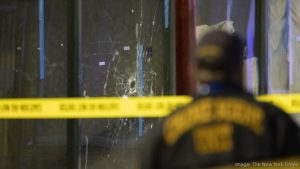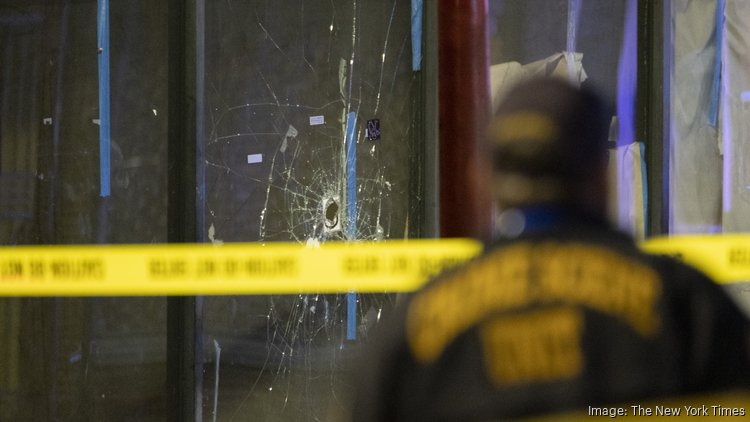Article published in the Philadelphia Business Journal on February 20, 2023.
All nine candidates who are running for the office of mayor of Philadelphia have acknowledged the importance of reducing violent crime in our city. In 2022, Philadelphia experienced 516 homicides, dwarfed only by a record high of 562 homicides in 2021. This compares with 277 homicides committed in 2016.
Violent crime undermines the quality of life in our city. “‘I do not feel safe’: Teacher safety spotlighted in Council meeting on Philly schools” is the headline of a Jan 31. KYW News article. The article describes the safety concerns of teachers that were expressed at the Philadelphia City Council meeting on the same day a student walking to Overbrook High School was shot.
There are no places for teachers to park at many schools, and they are concerned about their safety walking to the school from a remote parking spot. One can imagine how students who walk many blocks to school feel about their own safety. The issue of safety is one of the reasons the School District of Philadelphia has problems retaining teachers.
There are many instances of crimes against students on all of Philadelphia’s college campuses. At some point, students will pause before choosing to attend college in our city.
Temple has its own police force to supplement the efforts of Philadelphia police. To protect their students, some parents have hired a private security service to supplement the efforts of Temple police. On Feb. 18, a Temple police officer was tragically killed while trying to prevent a carjacking. When will Temple’s campus be considered safe?
Merchants across the city are plagued by shoplifters who know they face little chance of prosecution. After the closure of two Center City Wawa convenience stores, Philadelphia City Council member Mike Driscoll reported that he was told by a Wawa senior spokesman that due to increased crime, “We’re seriously considering moving out of the city of Philadelphia in our strategic planning, at least not to expand.”
So, what do Philadelphia’s mayoral candidates plan to do about crime? Their approaches run the gamut and lack detail. I have yet to hear the approach that all candidates should pursue—benchmark other cities that have had success in reducing crime.

New York City stands out, but is not the only success. These other cities should be benchmarked as well. A 2009 City Journal article is headlined, “How New York became safe: The full story.” The article outlines NYC’s path to reducing crime, including initiatives that were abandoned because they were not effective.
What did NYC focus on? Minor crimes. The theory known as the Broken Window Theory of Crime states that “visible signs of crime, anti-social behavior and civil disorder create an urban environment that encourages further crime and disorder, including serious crimes. [A focus] on crimes such as vandalism, loitering, public drinking, jaywalking and fare evasion help to create an atmosphere of order and lawfulness.”
Many civil rights activists claimed that this approach is “racist, it harassed and criminalized the poor, it constituted cultural imperialism and amounted to overzealous ‘zero tolerance.’”
These activists claim that the reduction in NYC crime was due to other factors. Proponents of the Broken Window Theory, however, point to studies where focusing on minor crime was a significant contributor to major crime reduction. I believe a middle ground needs to be found between the activists and Broken Window Theory proponents to reduce crime in Philadelphia.
In October 2021, Philadelphia City Council passed legislation prohibiting police from ticketing low-level traffic offenses. A City Council press release stated the “Driving Equality legislation seeks to address the tension between police and community members by removing negative interaction through minor traffic stops.”
Driving Equality legislation sends a message that traffic laws can be ignored. My own experience is that more people are running red lights now than in the past, and it is necessary for one to look in their rear-view mirror before deciding to stop at a yellow light. The driver behind you may decide not to stop. Some drivers are ignoring red traffic lights completely. This creates a dangerous situation for cars and pedestrians about to enter the intersection from the cross street and erodes respect for laws meant to protect everyone.
Rather than watering down the enforcement of laws, we need to focus on training and a police officer selection process to better ensure they have a high level of common sense and good critical judgment. It is difficult to recruit police officers with the right qualifications, leading to a staffing shortage. This exacerbates the efforts to reduce crime.
With better police officer training that focuses on improved interactions with drivers, perhaps there would be less opposition by activists to the Broken Window Theory of Crime, and City Council members wouldn’t be watering down enforcement of laws already on the books.
We are all waiting for detailed proposals from Philadelphia’s mayoral candidates that will meaningfully reduce violent crime. The future livability of our city depends on it.
Stan Silverman is founder of Silverman Leadership and author of “Be Different! The Key to Business and Career Success.” He is also a speaker, advisor and widely read nationally syndicated columnist on leadership. He can be reached at Stan@SilvermanLeadership.com.

